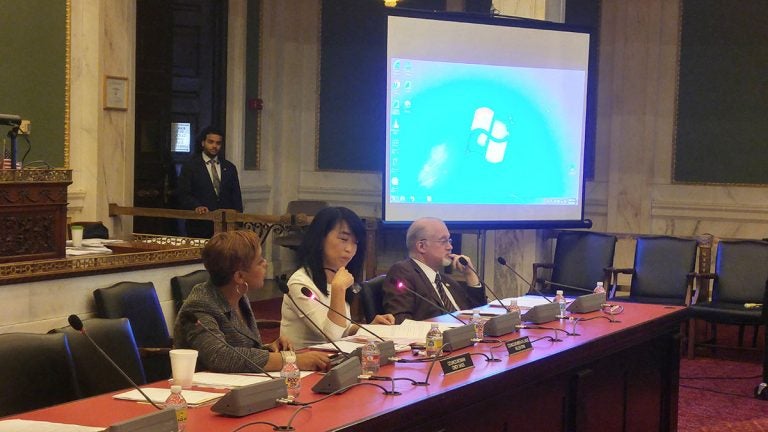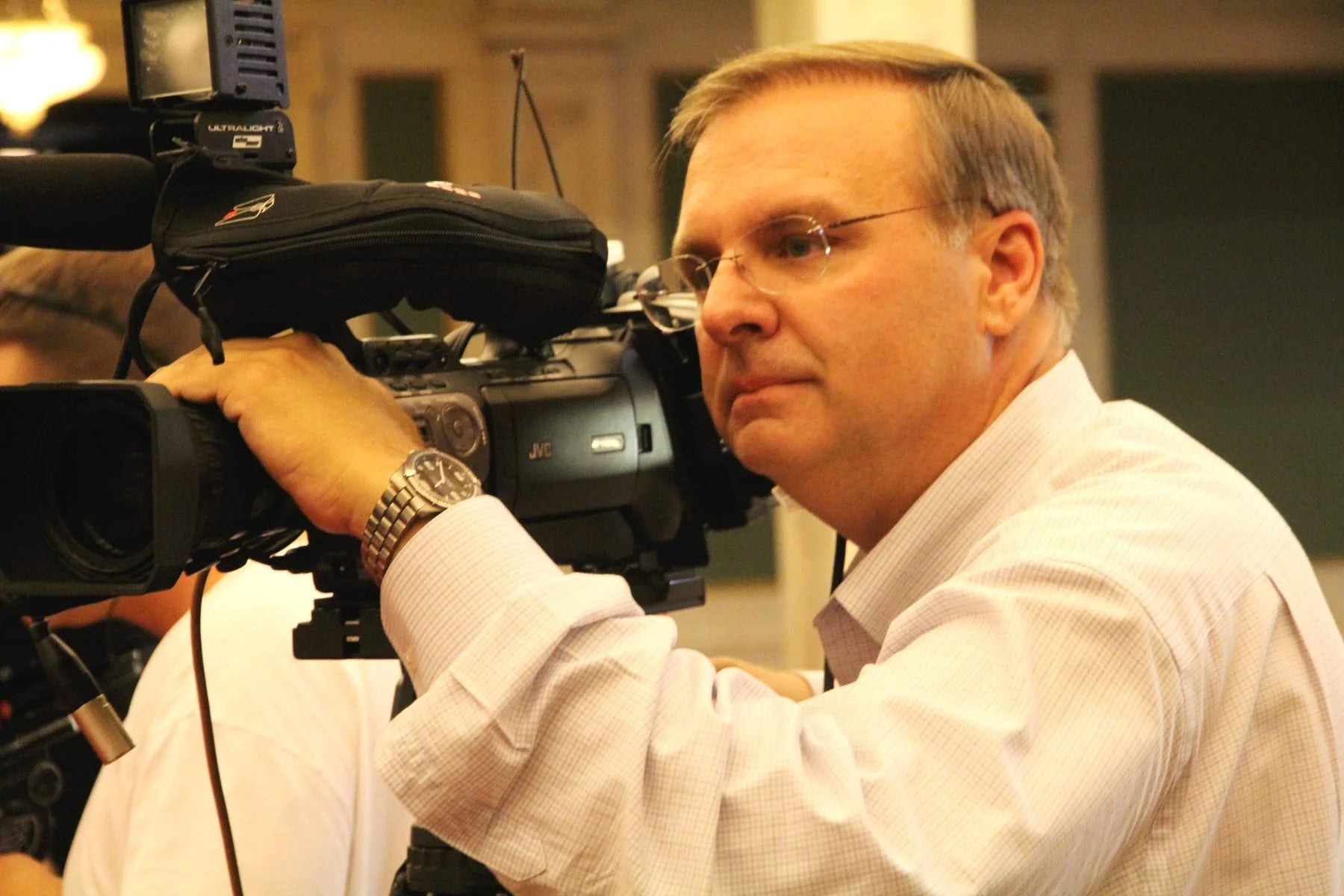Philly doesn’t have Flint-like lead issue, city officials testify at hearing
Listen
Philadelphia Council members hear about the level of lead in the city's water supply.(Tom MacDonald / WHYY)
Philadelphia City Council members heard more about whether lead in Philadelphia homes is a problem for the city’s children during a Monday morning hearing.
Dr. Caroline Johnson of the Philadelphia Health Department testified that Philadelphia’s efforts to deal with the risks of lead have made a difference.
“Among children being tested for lead between the ages of zero and five years, the proportion of those with a level of 10 or above had declined from 18 percent in 2003 to 1.7 percent in 2014,” Johnson said, adding that physicians become concerned at a level of 10.
However, Megan DeSmedt of PennEnvironment said the city isn’t using the best practices for testing water.
“These are things that were used in Flint and Washington, D.C., and where lead in water has become a really serious problem,” she said. “The problem was masked for too long by poor testing methods and a lot of those same testing methods are what are being used in Philadelphia.”
The city’s aging housing stock does have lead pipes, which cause some problems, said Water Commissioner Debra McCarty.
“The challenge is — when it gets into people’s homes that have a lead service line, it can sit in the pipe — and when it sits there for a long time, the lead can leach into the water,” McCarty said.
Over 10 years, starting in 2000, the city school district tested more than 20,000 drinking sources in 308 buildings. After testing and remediation, which cost approximately $5 million, all the district’s water fountains passed the EPA lead test requirements.
WHYY is your source for fact-based, in-depth journalism and information. As a nonprofit organization, we rely on financial support from readers like you. Please give today.





